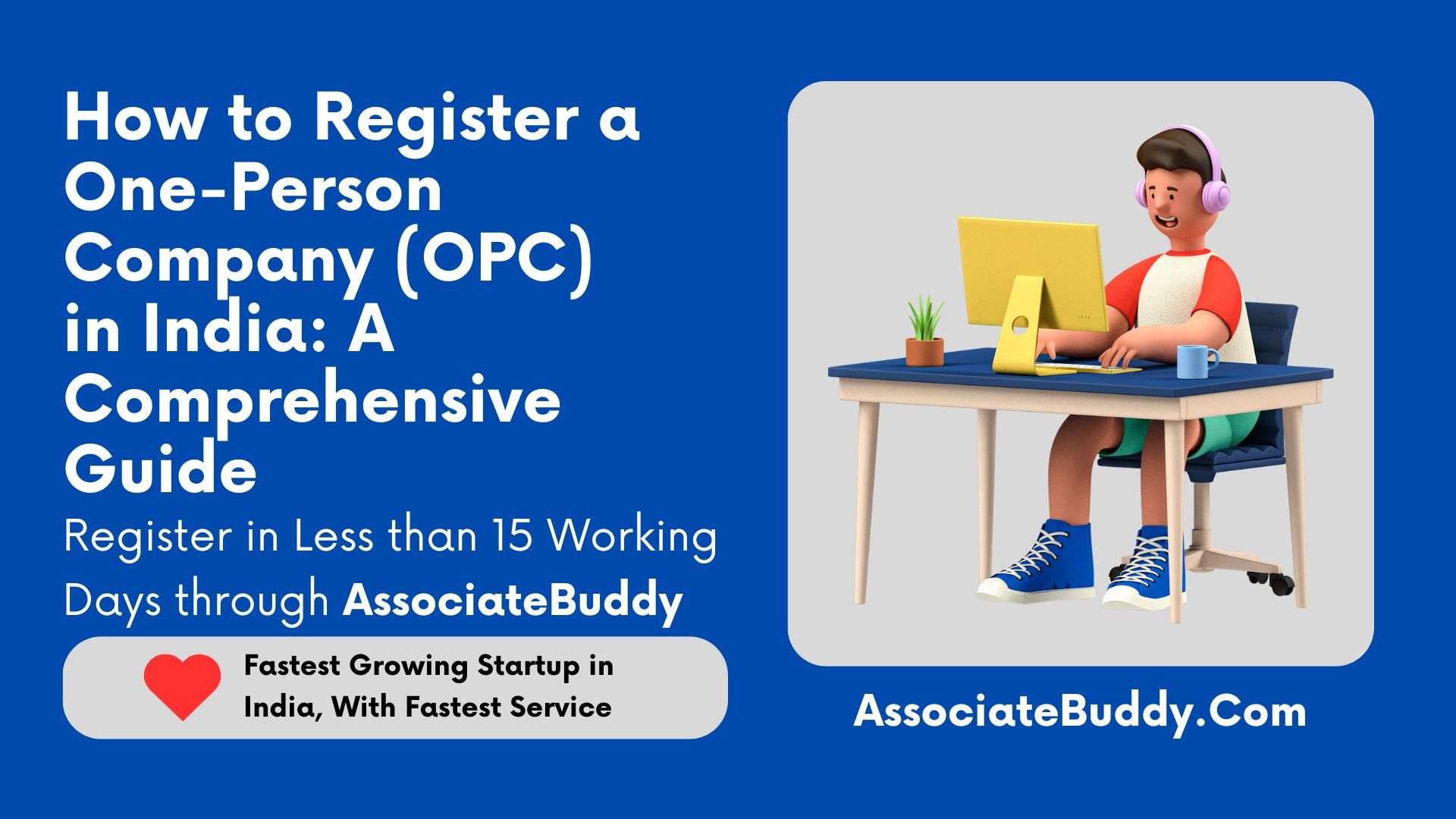Table of Contents
Introduction
A One-Person Company (OPC) is a relatively new concept in India, introduced to support entrepreneurs and solo business owners. It combines the benefits of sole proprietorship and corporate structures, providing limited liability and fewer compliance requirements. This business structure is ideal for individuals who wish to run a business single-handedly while enjoying the advantages of a private limited company. The OPC framework is designed to offer legal protection to its sole member and facilitate smoother business operations.
What is a One-Person Company (OPC)?
A One-Person Company (OPC) is a type of business entity where a single individual owns, operates, and manages the entire business. It offers limited liability protection to its sole shareholder, meaning personal assets are protected against business liabilities. The OPC structure allows a single entrepreneur to form a company, which was not possible before the Companies Act, 2013.
Documents Required for Registering a One-Person Company (OPC)
- Identity Proof: Passport, Aadhar card, Voter ID, or Driver’s License of the director and nominee.
- Address Proof: Utility bills or bank statements.
- Proof of Registered Office: Electricity bill or property tax receipt for owned property; rental agreement or NOC for rented premises.
- PAN Card: Of the director and nominee.
- Memorandum of Association (MOA) and Articles of Association (AOA): Defining the company’s objectives and regulations.
- Consent Forms: DIR-2 for the director and INC-3 for the nominee.
Essential Licenses and Registrations for One-Person Company (OPC)
- Digital Signature Certificate (DSC)
- Director Identification Number (DIN)
- Name Approval through SPICe+ Form
- Certificate of Incorporation
- Permanent Account Number (PAN)
- Tax Deduction and Collection Account Number (TAN)
- Goods and Services Tax (GST) Registration (if applicable)
- Professional Tax Registration (if applicable)
- Shop and Establishment Act Registration (if applicable)
Advantages of a One-Person Company (OPC)
- Limited Liability: Protects the personal assets of the owner.
- Separate Legal Entity: Recognized as a separate entity from its owner.
- Perpetual Succession: Continues to exist even in the case of the owner’s death or incapacity, with the nominee taking over.
- Ease of Management: Single owner can make decisions quickly without needing consensus.
- Access to Funds: Easier to obtain funding from banks and financial institutions compared to sole proprietorships.
Disadvantages of a One-Person Company (OPC)
- Limited Growth Potential: Restrictions on the expansion due to the single-member structure.
- Higher Compliance Costs: Compared to sole proprietorships, OPCs have higher compliance requirements and associated costs.
- Mandatory Conversion: If turnover exceeds INR 2 crore or paid-up capital exceeds INR 50 lakh, OPC must convert into a private limited company.
- Nominee Requirement: Must appoint a nominee who will take over in case of the owner’s demise, adding complexity.
- Limited Tax Benefits: Unlike private limited companies, OPCs do not enjoy some of the tax benefits available to other business entities.
Registering a One-Person Company (OPC) Online through Associate Buddy
- Consultation: Discuss your business needs with experts at Associate Buddy.
- Document Collection: Assistance with gathering and preparing necessary documents.
- Name Approval: Help with submitting the SPICe+ form for name reservation.
- Application Filing: Submission of incorporation documents to the Ministry of Corporate Affairs (MCA).
- Certification: Obtaining the Certificate of Incorporation, PAN, and TAN.
- Ongoing Support: Continuous compliance and legal support to ensure your OPC remains in good standing.
Compliances for One-Person Company (OPC)
- Annual Returns: Filing annual returns with the Registrar of Companies (RoC).
- Financial Statements: Submission of audited financial statements.
- Board Meetings: At least one board meeting in each half of the calendar year.
- Income Tax Returns: Filing annual income tax returns.
- GST Returns: Monthly, quarterly, and annual GST returns (if applicable).
- Statutory Audits: Mandatory audits of financial statements.
Conclusion
Registering a One-Person Company (OPC) offers numerous benefits, including limited liability, ease of management, and perpetual succession. However, it also comes with compliance requirements and limitations on growth. With the assistance of services like Associate Buddy, the registration process can be streamlined, allowing solo entrepreneurs to focus on their business growth and success.


